This restaurant is named after an 1855 book of that name by Sir Joseph Hooker, who led a group of botanists that catalogued plants in India and later became head of the Royal Botanic Gardens at Kew. The seemingly tenuous link is that the bar serves a range of botanical gin cocktails and the dining room serves Indian food. Well, to be fair it is tough coming up with original names. The dining room is smartly decorated, and includes a full size blue phone box, apparently a hint by the designer at time travel (the TARDIS) to suggest the link to the 19th century botanists. Well, to be fair it is tough coming up with original interior design.
The menu offered, guess what? To no-one’s surprise, it was “Small sharing plates”, just as with virtually every London restaurant in recent times. These ranged in price from £5 to £9, with curries at £12 to £15, side dishes at £2.50 to £4.90 and desserts at £5 to £7. A three course set lunch was £18, and there was a tasting menu at £39. The dishes are not your regular curry house fare: think bergamot chicken tikka, Jerusalem artichoke papdi chaat and hemp seed and Red Leicester crusted naan. Heading up the kitchen (though not in tonight) was Trilochan Kharal, who worked previously at Gymkhana.
The wine list had five dozen labels, ranging from £19 to £139. Examples were Ladybird Chenin Blanc 2015 at £28 for a bottle that you can find in the high street for £11, Wallace Grenache/Shiraz at £49 compared to its retail price of £18, and Jean Marc Pillot Les Pierres Chassagne Montrachet 2011 £74 for a wine that will set you back £38 in a shop.
Okra chips were quite good; okra is notoriously slimy, but these were crisp, and the flavour of the okra came through well (13/20). Venison sheek with coriander chilli sauce and spiced fig was less convincing, mainly because the venison mince was a bordering on chewy in places (11/20).
Jerusalem artichoke papdi chaat sounded odd but was the dish of the night. The artichokes were crisp and worked well with the sweet tamarind – the overall effect excellent (easily 14/20). Malwani prawn with black mooli (radish) is a southern Indian dish and had tender prawn with a pleasant blend of spices in the sauce (13/20). Amritsar soft shell crab came with tadka (cooked lentil) mayonnaise and King Edward potatoes with tamarind. The fried crab avoided the greasiness that often affects it, and the potatoes were worked well with the mayonnaise (13/20).
Paneer (unsalted white cheese) kofta was made with Jerusalem artichokes and spinach. This combination, along with the spices they were mixed with, worked very effectively, and was one of the best dishes of the evening (14/20). A Bengali curry of prawn and soft shell crab had coconut with a creamy malai sauce. Again the shellfish was nicely cooked, and the spices in the curry did not overwhelm the seafood (13/20). Black lentil and kidney bean dhal (makhani) was slow-cooked and laced with red chilli, the texture of the dhal very good (easily 13/20). A naan bread was initially served tepid, but was speedily replaced with a fresh one, and had reasonably soft texture (12/20). Beetroot halwa was an interesting idea in principle but bizarrely it was served with strawberries (in January?) and overall just didn’t work as well as the classic carrot halwa (11/20). I didn’t try the kulfi as it is not made in the kitchen.
Service was pleasant, though on this January weekday evening the staff were not exactly stretched; our Polish waitress was friendly and capable. The bill came to £44 with just water to drink. If you shared a modest bottle of wine then a typical cost per head might be around £65. This is actually a bit high given that there are no luxury ingredients here: chicken and prawns, not turbot and langoustines. However, despite the unusual menu and the odd slip, the food was generally very good. I’d be happy enough to come back.















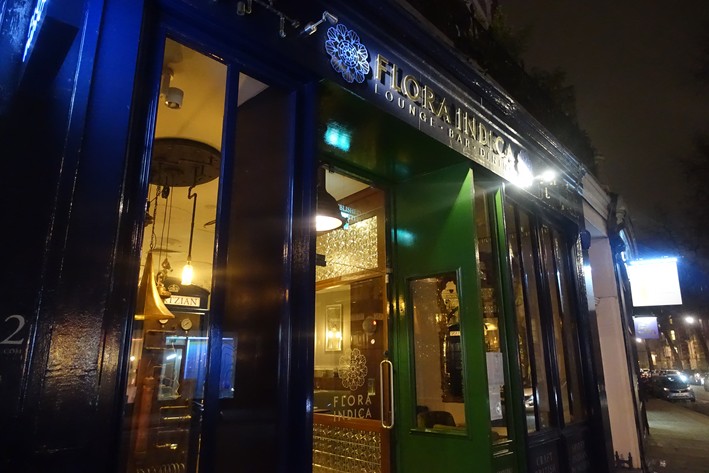

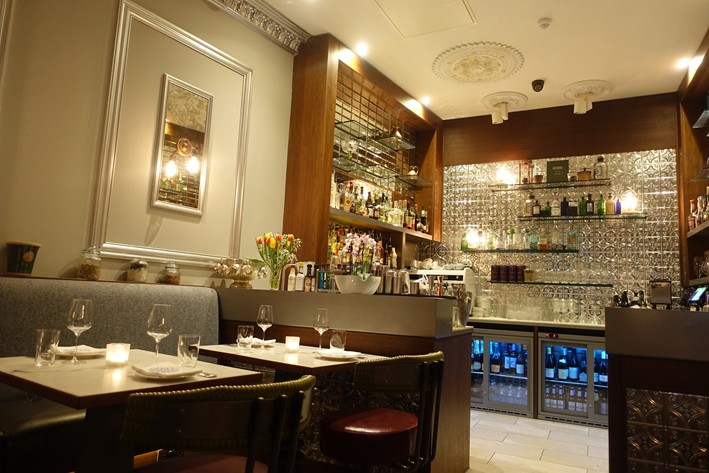
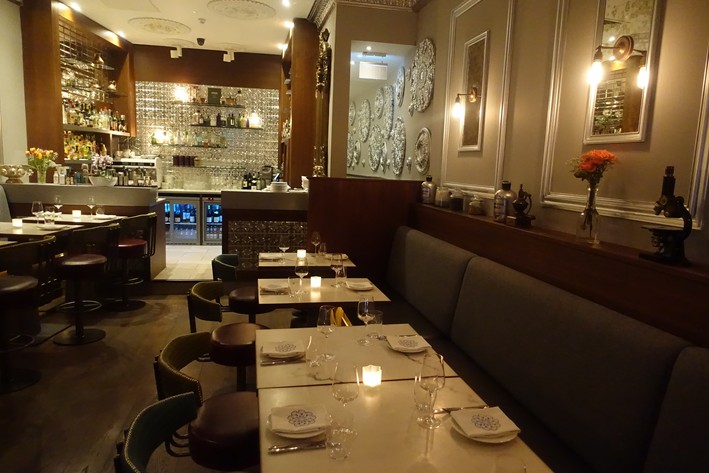
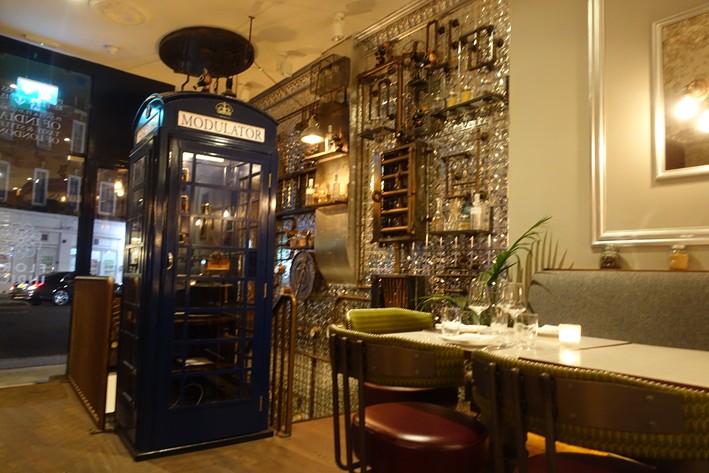
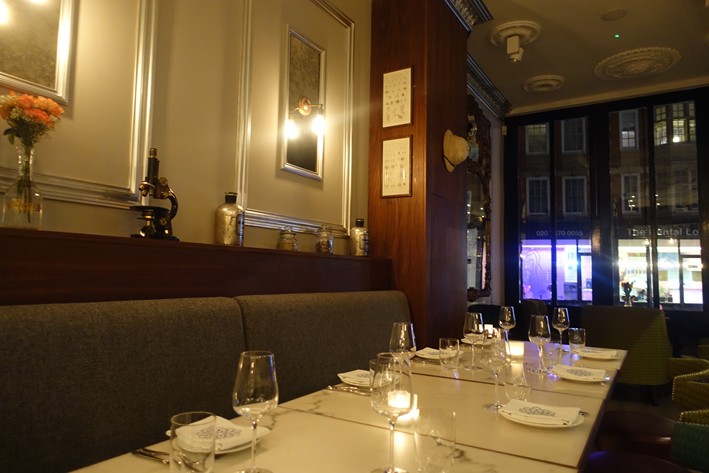
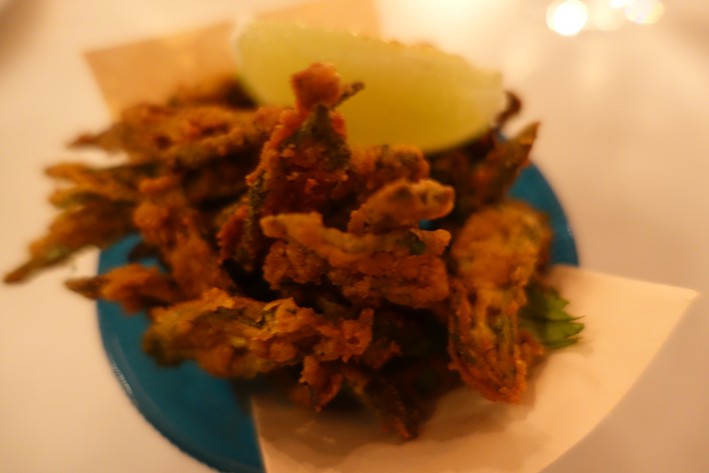
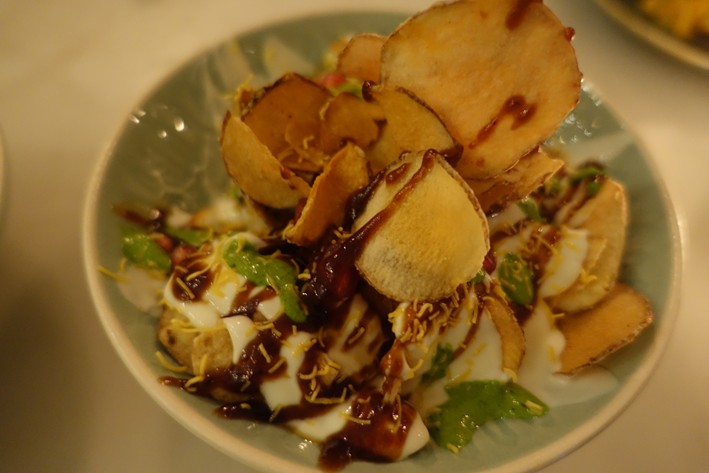
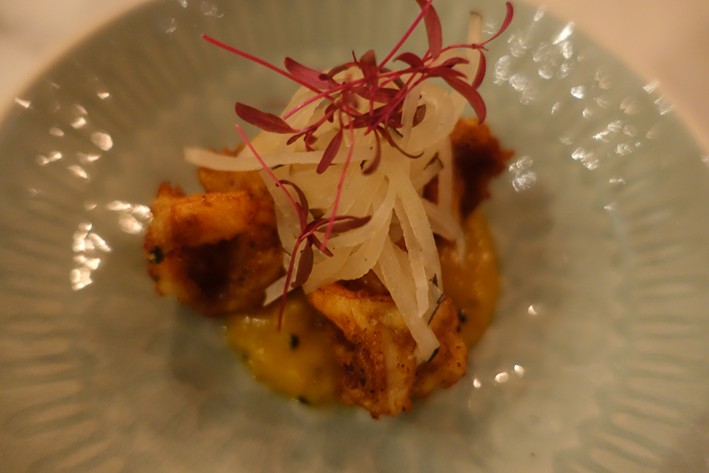
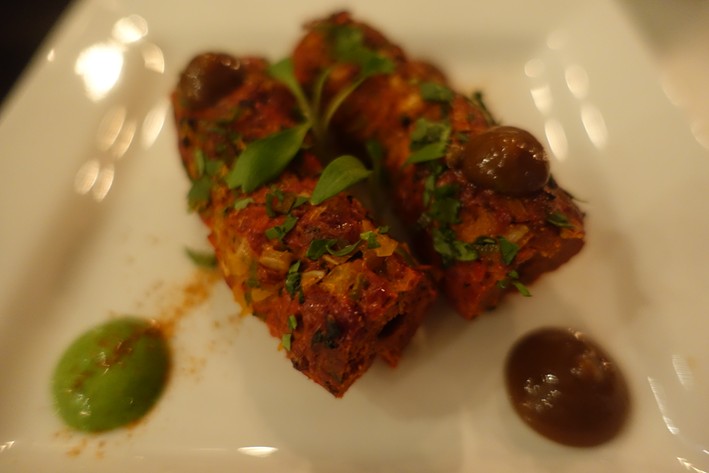
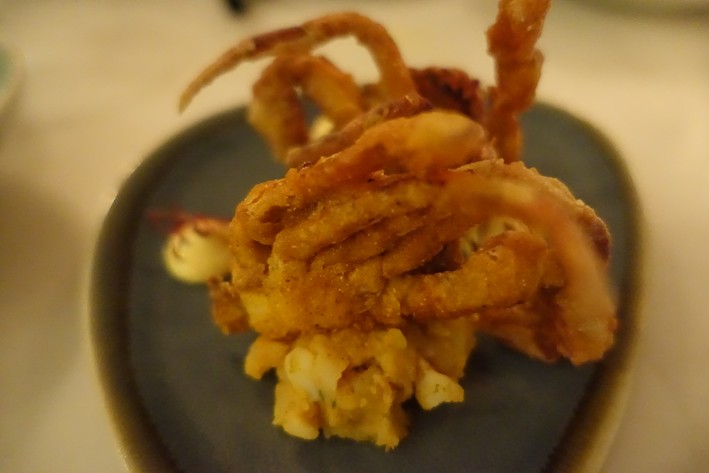
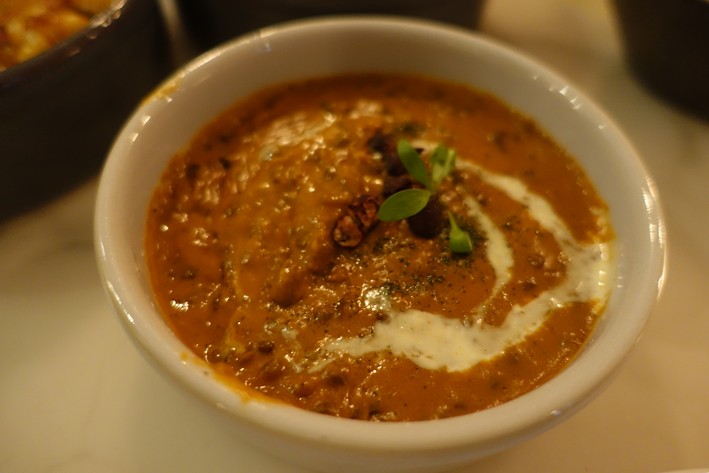
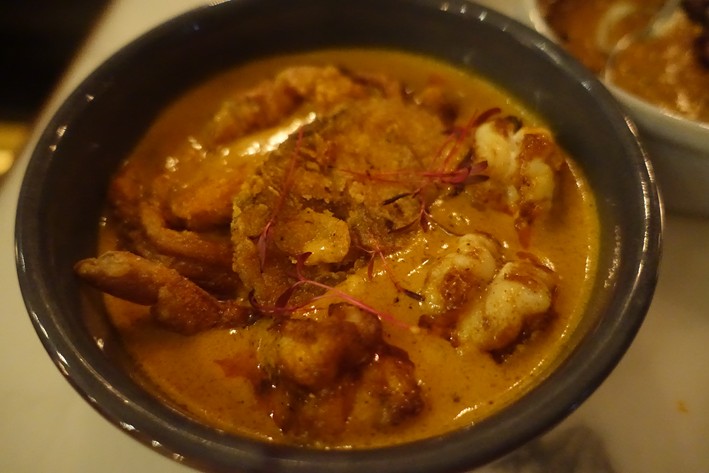
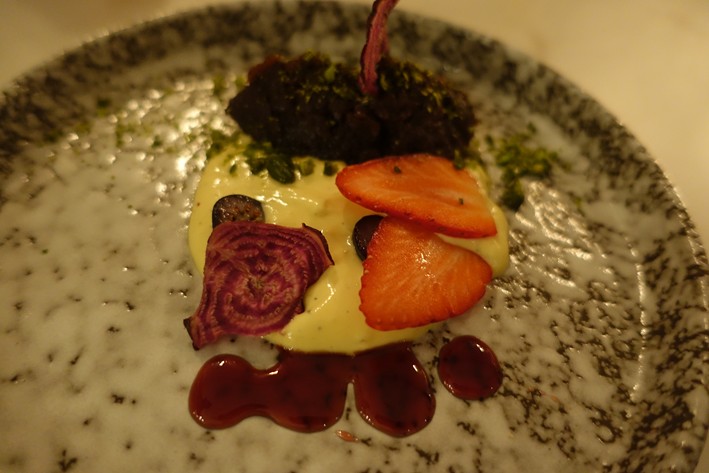

Add a comment
Thank you for submitting your comment, this will be checked and added to the website very soon.
User comments